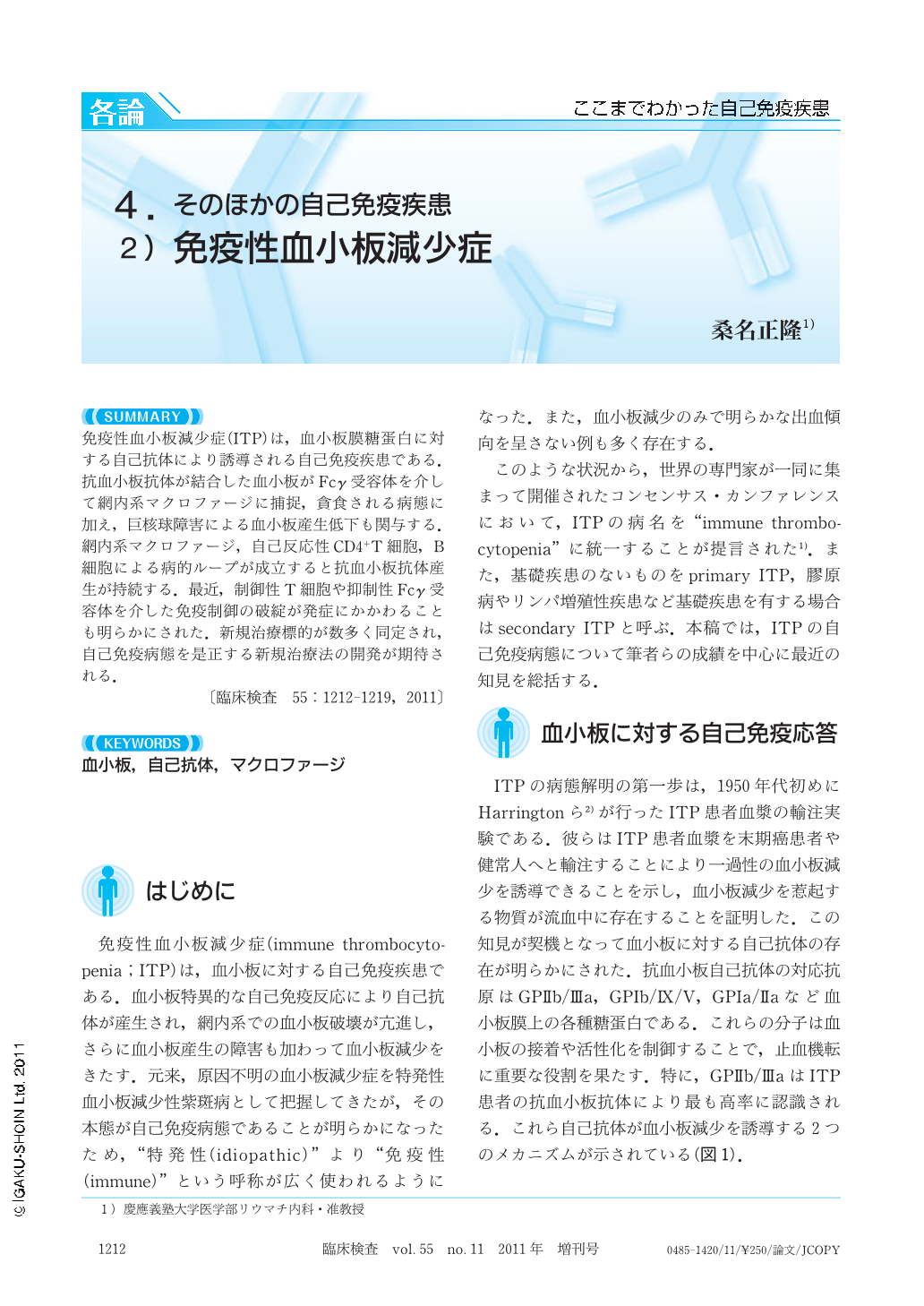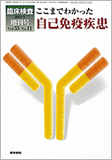Japanese
English
- 有料閲覧
- Abstract 文献概要
- 1ページ目 Look Inside
- 参考文献 Reference
免疫性血小板減少症(ITP)は,血小板膜糖蛋白に対する自己抗体により誘導される自己免疫疾患である.抗血小板抗体が結合した血小板がFcγ受容体を介して網内系マクロファージに捕捉,貪食される病態に加え,巨核球障害による血小板産生低下も関与する.網内系マクロファージ,自己反応性CD4+T細胞,B細胞による病的ループが成立すると抗血小板抗体産生が持続する.最近,制御性T細胞や抑制性Fcγ受容体を介した免疫制御の破綻が発症にかかわることも明らかにされた.新規治療標的が数多く同定され,自己免疫病態を是正する新規治療法の開発が期待される.
Immune thrombocytopenia (ITP) is a T-cell-mediated autoimmune disease caused primarily by IgG autoantibodies to platelet glycoproteins, such as GPIIb/IIIa. The epitopes recognized by GPIIb/IIIa-reactive CD4+ T cells are 'cryptic' determinants, generated at a subthreshold level by the processing of GPIIb/IIIa under normal circumstances. These autoreactive T cells are present in the normal T-cell repertoire, but are activated in ITP patients, indicating that exposure of the cryptic peptides of GPIIb/IIIa to the immune system is a critical step for triggering and maintaining the anti-platelet autoantibody response. The ongoing anti-platelet antibody response is governed by a pathogenic loop consisting of reticuloendothelial macrophages, and GPIIb/IIIa-reactive T and B cells. Once this pathogenic loop is established, anti-platelet antibody production goes on endlessly.

Copyright © 2011, Igaku-Shoin Ltd. All rights reserved.


